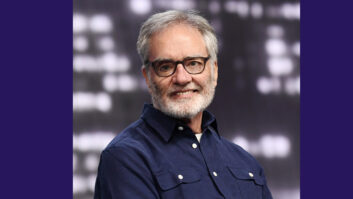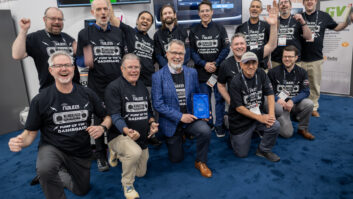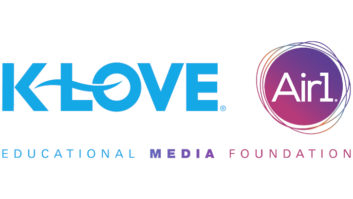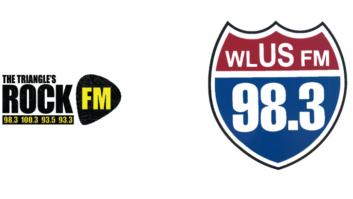TOCCOA, GA. — While many large radio broadcast groups sink millions of dollars into developing digital services like podcasting and streaming and hoping to make money on them, Art Sutton’s Georgia-Carolina Radiocasting Company isn’t obsessing about streaming cume, geofencing, website hits or podcast downloads.

It’s not that Sutton doesn’t believe in an online and social media presence for his radio stations, he’s just not into the great chase to monetize as many platforms as possible. Instead, the mission of Georgia-Carolina Radiocasting is pretty straight ahead: “To provide high-quality, informative local radio programming to listeners in the markets we serve.”
Sutton’s group, which operates small-market radio stations in Georgia, North Carolina and South Carolina, still embraces classified ads shows like Trading Post and Swap Shop. And yes, even the obituary report.
Sutton has been vocal in his criticism of the radio industry’s habit of jumping on the latest digital trend. He told Tom Taylor’s NOW newsletter in late 2018 that “all we hear now is podcasting and how it’s the hottest thing in radio. If that’s really true, how sad to realize how empty the radio leadership bench has become.”
Instead, Sutton says he is focused on delivering results to his advertising clients and engaging local listeners in the community.
“We are in a business that is supported by advertising. This whole notion of diversifying and monetizing digital is off base. We don’t make money off digital. It’s not a priority with our sales staff. We really don’t make any revenue off digital,” Sutton said.
However, the group’s websites and Facebook pages are popular, he says. “In one small market, a county of 25,000 people, our station had 30,000 unique visitors to its website in a month.”
Sutton sees online and podcasting as “just add-ons” for his sales staff who target over-the-air advertising.
“I have noticed that most successful radio stations have leadership focused on sales. Even if they were not that good at sales themselves, they had good local sales staffs. It doesn’t take a dummy to make the correlation that this business is really about advertising,” Sutton said.
Sutton thinks it is gimmicky for radio to pitch digital over on air presence. “It frustrates me when I see what we do best, which is selling advertising on air, and it gets relegated to second rate. The industry has always been bad about coming up with the next new gimmick.
“Podcasting is not going to save the radio industry. That is ridiculous. Some folks now are more concerned with what the ideal length of a podcast is rather than selling advertising. I think it’s a disservice when the leaders of our industry get up and talk only about digital. Corporate radio is too focused on impressing investors when they should really focus just on what we do best, which is delivering customers to clients in through traditional over the air means,” Sutton said.
Sutton applauds Jeff Smulyan and his efforts at Emmis to promote the NextRadio initiative, the radio industry’s recently aborted attempt to get FM radio chips activated in smartphones to allow for over-the-air reception.
“The traditional radio receiver is quickly going away, and in the future if you can’t pick up every FM radio station on a mobile device, radio’s easy and no cost accessibility will be a thing of the past,” he said.
“It’s already underway with auto receivers. The greater good for every owner of a radio station is getting reception on mobile devices, turning them into the transistor radios of today, but the big operators wouldn’t step to the plate because it’s competing with their own streaming services.”
A TRUE GEORGIA BROADCASTER

Georgia-Carolina Radiocasting is based in Toccoa, Ga., about 90 miles northeast of Atlanta and home to Sutton’s flagship stations WNEG(AM/FM). It has around 60 employees company-wide. The group has four AM stations, six FM stations along with seven FM translators (four of which repeat AMs and two that repeat HD channels on FMs) and one FM booster station.
“Our stations primarily sit in areas outside the edge of big FM signals in Atlanta and Greenville, S.C.,” he said, “and that is by design, really. We don’t have that out-of-market deep signal penetration that can really hurt a small town station. If you have success in small town radio, it is usually one of the contributing factors.”
Sutton, 56, was inducted into the Georgia Association of Broadcasters Hall of Fame this past year. According to his bio, he got his start in radio broadcasting at the age of 15, starting with his home-town station, WOGA(AM) in Sylvester, Ga. He later attended Abraham Baldwin College in Tifton, Ga., and by 1982 was full-time news director/part-time sales person at WTIF(AM) in Tifton. Then in 1986, he acquired 50-percent ownership interest of WMGA(AM) in Moultrie, Ga. In 1991, he became station manager of WJTH(AM) in Calhoun, Ga., and then proceeded to buy and sell a series of radio stations through the 1990s.
Sutton, who was born and raised on a peanut farm in Georgia, formed Georgia-Carolina Radiocasting in 2002 and focused for a time on upgrading and developing the frequencies and signals of his own stations while assisting other operators in enhancing their signals by taking advantage of FM move-ins.
“I was self-taught through study of FCC station allocation rules. The move-ins were eventually sold but resulted in several new radio stations in places like Atlanta and Asheville and Charlotte in (N.C.),” he said. “Luckily, we made those moves just prior to the Great Recession in 2007.”
Since then Sutton has focused on securing FM translators to rebroadcast several of his AM station’s signals.
LOCALISM
He believes that localism is why he has been successful — and it’s localism that will ultimately save radio. In fact, his company once wrote in 2008 comments on a pending FCC NPRM on localism that “failure to associate with the communities’ needs is tantamount to a ‘death sentence’” for a radio station.
“Localism has been and is our theme,” he says. “We still emulate what hometown newspapers used to do. Through local news and being community oriented, we connect with the listeners. It’s about local information and being seen in the community. A strong local news department is critical. That’s the one thing that can’t be recreated by some music stream originating someplace else.”
Since Sutton has radio stations based in small markets, he isn’t afraid to admit that “radio advertising in small markets is priced cheaply, so let’s own it.”
His stations have also found a non-traditional source of on air advertising: local county governments.
“I think some of that has to do with newspapers going away. Even though local governments need to communicate with constituents. They need to advertise events, ordinance changes and meetings. We are tapping into that money.”
Sutton said he doesn’t believe future revenue growth in the digital sector for radio is a guaranteed thing. In fact, Borrell Associates, an advertising research firm, revised their local advertising forecast for 2019 to include warnings of digital growth slowing, according to Taylor’s NOW newsletter.
“In order to survive we will continue doing local radio. A radio station has to remain relevant in the community,” Sutton says, “since “revelancy is what it is all about. We need to stick to the basics of what makes radio great.”







